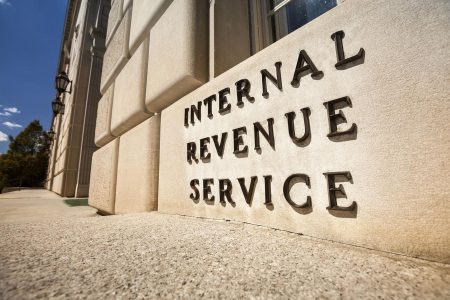All eyes (especially those of the Department of Justice and the IRS) are currently on former defense contractor, Douglas Edelman, and his French wife Delphine Le Dain. They were charged with schemes to defraud the United States and evade taxes on more than $350 million in income earned from contracts with the Department of Defense to provide jet fuel to American troops in the Middle East.
It is alleged that the $350 million was income owned by Edelman, an American citizen, who through an elaborate scheme, pretended the funds were income to his French wife. As a French citizen residing overseas, Le Dain would not owe any U.S. tax. Edelman allegedly engaged in a complex scheme to hide his profits from two foreign companies Mina Corp. and Red Star Enterprises, by falsely claiming they were founded and owned by his wife. Ms. Le Dain allegedly signed various false documents, including those that purported to “gift” Edelman money for certain personal expenses.
In tax talk, Le Dain was a mere “nominee” having bare title to the two foreign companies. The true beneficial owners were Mr. Edelman and a Kyrgyz national. Their true ownership was allegedly hidden through trust structures in the name of Le Dain. It is alleged that this elaborate nominee scheme was created so Mr. Edelman could avoid paying U.S. tax on the millions earned from the companies.
Nominee Arrangements
Nominee arrangements can clearly be employed for illicit purposes. However, they have very legitimate uses as well. When used legitimately, it is essential for the parties to ensure proper reporting for U.S. tax purposes. Documentation and transparency are key factors to distinguish lawful use from misuse of a nominee arrangement.
This article explains how the nominee relationship works. It looks at the importance of documentation, and the tax dangers when U.S. persons act as nominees (often, but not always, for foreign persons) holding title to non-U.S. assets.
Role Of The Nominee
A nominee is a person or entity named by another party (a “nominator”) to hold legal title to certain assets. Even though the nominee is officially registered as the owner of the asset, the nominee is not what the legal and tax world call the “beneficial owner”. The beneficial owner is the true person or entity that ultimately owns, enjoys, or controls the property, even though legally held in the name of another. All rights and incidents of true ownership belong to the beneficial owner and essentially, the nominee stands in a position of trust to that owner.
Family members frequently make use of nominee relationships, often as a method to protect aging loved ones who need assistance managing financial affairs. Titling financial accounts in the name of the nominee or in joint name with the beneficial owner, are common examples.
The use of nominees does not alter the obligations of the beneficial owner to pay tax and meet reporting requirements. For example, if a parent registers stock in the name of his child, and the parties have a clear understanding that the parent is the beneficial owner, the parent has the voting rights, rights to dividend income, and the proceeds when the stock is sold. The parent is the party responsible to pay tax on the dividends or capital gains.
Proper Documentation Is Critical
In family situations, the existence of the nominee relationship often remains undocumented. This is troublesome for various legal reasons, not just tax. If the nominee decides to disregard the relationship and treat the asset as if he is its beneficial owner, the true owner may face an uphill battle. Regaining rightful ownership and reclaiming income or proceeds that have been wrongfully retained by the nominee can be a challenge. While the beneficial owner will have legal recourse against the nominee, it may be difficult to prove the asset was not given as a true gift.
Problems can arise upon death of the beneficial owner if the nominee relationship has not been clearly established and other parties feel entitled to a share of the asset. A legal wrangle may also be inevitable in the case of a divorcing couple – that is, when one spouse demands a share of assets that are not beneficially owned by the other spouse.
It is obvious that nominee holdings can result in unanticipated problems. As such, all nominee relationships should be properly documented.
U.S. Nominees Holding Foreign Assets
U.S. tax complications arise when a U.S. person acts as a nominee holding foreign assets. Questions may be asked by the IRS when it begins receiving information from foreign financial institutions about U.S. account holders who have not reported income from foreign accounts or ownership of foreign assets. Neither the IRS nor the financial institution will be aware that the U.S. person is merely acting as a nominee.
U.S. reporting obligations do not simply disappear because the individual holds only as a nominee. For example, the Report of Foreign Bank and Financial Accounts must be filed by both the beneficial owner and the nominee (if both are U.S. persons) if the aggregate value of non-U.S. accounts exceeds $10,000.
Foreign families usually do not want the U.S. government to have detailed information about their financial affairs, which have no connection to the U.S. except for the involvement of the American nominee. Solutions might lie in terminating nominee relationships with U.S. persons and replacing them with non-U.S. persons; properly documenting the relationship and clarifying when it began. Additionally, consulting with a U.S. tax professional how to address reporting issues, including past deficiencies, is crucial.
I help with tax matters around the globe.
Reach me at [email protected] and check my website
Send a note about an area of tax you’d like to see me write about.
Read the full article here










